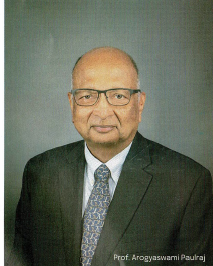22 April 2024 : PIB Summary for UPSC
PIB Summary for UPSC
22-April-2024
1. PM inaugurates 2550th Bhagwan Mahaveer Nirvan Mahotsav on occasion of Mahaveer Jayanti
| Topic: GS1 – History – Indian culture.
The event highlights Contribution of Bhagwan Mahavir to Indian cultural heritage, spirituality, and India’s timeless values, relevant for understanding societal ethos and diversity. |
| Context |
| ● The news is about Prime Minister Narendra Modi inaugurating the 2550th Bhagwan Mahaveer Nirvan Mahotsav and releasing a commemorative stamp and coin. |
Additional information on this news:
- Prime Minister Narendra Modi inaugurated the 2550th Bhagwan Mahaveer Nirvan Mahotsav in New Delhi.
- He released a commemorative stamp and coin on the occasion.
- The event included a dance drama presentation by school children titled “Vartaman mein Vardhaman”.
- Modi highlighted the youth’s commitment to Bhagwan Mahaveer’s values, signaling the nation’s progress.
- He emphasized the significance of the occasion, coinciding with India’s journey towards a golden century of independence.
- Modi praised India’s enduring civilization, its spiritual inspiration, and its role as a haven for humanity.
- He underscored India’s inclusive ethos and its ability to envision for centuries to come.
| Contribution of Bhagwan Mahavir to Indian cultural heritage: |
| ●Ahimsa (Non-Violence): Bhagwan Mahavir emphasised ahimsa as the cornerstone of his teachings, advocating for non-violence towards all living beings, influencing Indian philosophy, ethics, and spirituality.
● Jain Philosophy: Mahavir’s teachings laid the foundation of Jain philosophy, emphasising principles such as anekantavada (multiplicity of viewpoints), aparigraha (non-possessiveness), and anitya (impermanence), which continue to shape Indian thought and culture. ● Asceticism and Renunciation: Mahavir renounced worldly attachments and embraced asceticism, inspiring followers to lead a life of simplicity, self-discipline, and detachment from material possessions. ● Moral Values: His emphasis on moral values such as truthfulness, compassion, forgiveness, and humility enriched Indian cultural heritage, guiding individuals towards ethical conduct and righteous living. ● Vegetarianism: Mahavir advocated for vegetarianism as a means to practise non-violence and compassion towards animals, influencing dietary practices and culinary traditions in India. ● Social Equality: Mahavira preached the equality of all beings regardless of caste, creed, or gender, promoting social harmony, tolerance, and inclusivity in Indian society. ● Community Welfare: Jain principles of charity, philanthropy, and community service contribute to social welfare activities, healthcare initiatives, and educational institutions, enriching the fabric of Indian society. ● Art and Architecture: Jainism has made significant contributions to Indian art and architecture, with intricately carved temples, sculptures, and manuscripts showcasing the aesthetic and cultural heritage of India. ● Literature and Language: Jain literature, including scriptures, scriptures, and philosophical texts, has enriched Indian languages such as Prakrit, Sanskrit, and Apabhramsha, preserving ancient knowledge and wisdom for future generations. |
| Practice Question: Discuss the enduring legacy of Bhagwan Mahavir and Jainism in shaping Indian philosophy, culture, and society. (250 Words /15 marks) |
2. Net Direct Tax collections (provisional) for Financial Year (FY) 2023-24 exceed Union Budget Estimates by Rs. 1.35 lakh crore i.e. by 7.40%.
| Topic: GS3 – Indian Economy – Issues relating to mobilisation of resources
Critical for UPSC to analyse India’s fiscal health, tax revenue trends, and economic performance for policy evaluation and governance. |
| Context |
| ● The news pertains to India’s net direct tax collections for the fiscal year 2023-24, which grew by 17.7% to ₹19.58 lakh crore, exceeding revised estimates. |
Additional information on this news:
- India’s net direct tax collections for 2023-24 grew by 17.7% to reach ₹19.58 lakh crore, slightly surpassing the revised estimates.
- The surge in personal income tax (PIT) contributed significantly, increasing its share of the tax kitty to 53.3%.
- Corporate taxes’ contribution decreased to 46.5% from 49.6% in the previous year.
- Provisional data released by the Finance Ministry indicated that PIT and securities transaction tax (STT) collections drove the uptick in net tax collections during the final fortnight of the financial year.
- PIT and STT receipts grew at almost double the pace of corporate taxes.
- As of March 17, net direct taxes had risen by 19.88% to ₹18.9 lakh crore, with PIT and STT accounting for 51.4% of the receipts.
- By March 31, PIT and STT inflows had increased by ₹73,000 crore, reaching ₹10.44 lakh crore for the full year.
- Gross corporate tax collections increased, but net tax receipts from corporates, after adjusting for refunds, slightly decreased.
- The gross direct tax kitty for 2023-24 stood at ₹23.37 lakh crore, reflecting an 18.5% growth over the previous year.
- Gross PIT and STT receipts accounted for ₹12.01 lakh crore, rising by ₹76,000 crore between March 17 and 31.
| Significance of increase in direct taxes revenue |
| What are direct taxes?
● Direct taxes are levied directly on individuals and entities by the government. ● These taxes cannot be shifted to another person or entity and are borne by the taxpayer themselves. ● Examples of direct taxes include income tax, corporate tax, capital gains tax, and property tax. ● Direct taxes are imposed based on an individual’s or entity’s income, profits, or assets. ● They are an important source of revenue for the government and play a significant role in funding public services and welfare programs. What are different types of direct taxes? ● Income Tax: Levied on the income earned by individuals, including salaries, wages, interest, dividends, and rental income. ● Corporate Tax: Imposed on the profits earned by companies or corporations from their business activities. ● Capital Gains Tax: Applied on the gains realized from the sale of capital assets such as stocks, bonds, real estate, or precious metals. ● Property Tax: Levied on the value of property owned by individuals or entities, including land, buildings, and other real estate. ● Wealth Tax: Tax on the net wealth or assets owned by individuals or entities, including cash, bank deposits, investments, jewelry, and other valuables. ● Inheritance Tax: Tax imposed on the value of inherited assets or property received by heirs or beneficiaries of an estate. ● Gift Tax: Levied on the value of gifts received by individuals or entities, typically above a certain threshold, to prevent tax evasion through gifting assets. Significance of increase in direct taxes revenue: ● Government Revenue: Increase in direct taxes revenue signifies a growth in the government’s primary source of income, providing funds for public expenditure, social welfare programs, and infrastructure development. ● Fiscal Stability: Higher direct taxes revenue contributes to fiscal stability by reducing budget deficits, financing government expenditures, and lowering reliance on borrowings, enhancing macroeconomic stability and investor confidence. ● Progressive Taxation: Direct taxes, such as income tax and corporate tax, are typically progressive, with higher-income individuals and companies paying a larger share of their income as tax, promoting equity and redistributive justice in society. ● Investment in Public Goods: The rise in direct taxes revenue enables governments to invest in public goods and services, including education, healthcare, infrastructure, and social security, enhancing overall welfare and quality of life for citizens. ● Reduction of Indirect Taxes: Increased direct taxes revenue may allow for a reduction in indirect taxes, such as goods and services tax (GST), benefiting consumers by lowering the cost of goods and services and improving affordability. ● Economic Development: Higher direct taxes revenue reflects a growing economy, increased economic activity, higher employment levels, and rising incomes, indicating a positive trajectory of economic development and prosperity. |
| PYQ: Enumerate the indirect taxes which have been subsumed in the Goods and Services Tax (GST) in India. Also, comment on the revenue implications of the GST introduced in India since July 2017. (150 words/10m) (UPSC CSE (M) GS-3 2019) |
| Practice Question: Discuss the various types of direct taxes prevalent in India, elucidating their significance, impact on taxpayers, and role in government revenue generation. (250 Words /15 marks) |
For Enquiry

22 April 2024 : Daily Current Affairs

22 April 2024 : PIB Summary for UPSC Copy

22 April 2024 : Indian Express Editorial Analysis

20 April 2024 : Daily Current Affairs Quiz

20 April 2024 : Daily Answer Writing

20 April 2024 : Daily Current Affairs

20 April 2024 : PIB Summary for UPSC

20 April 2024 : The Hindu Editorial Notes PDF

20 April 2024 : Indian Express Editorial Analysis

SCIENCE REPORTER SUMMARY: JANUARY 2024
April 2024 Daily Current Affairs 22 April 2024 : Daily Current Affairs Daily Current Affairs
22-April -2024- Top News of the Day
1. Global Coral Bleaching Crisis: Urgent Action…
April 2024 PIB 22 April 2024 : PIB Summary for UPSC Copy PIB Summary for UPSC
22-April-2024
1. PM inaugurates 2550th Bhagwan Mahaveer Nirvan Mahotsav on occasion…
April 2024 Indian Express 22 April 2024 : Indian Express Editorial Analysis Indian Express Editorial Analysis
22-April-2024
1. Cures, care, competition
Topic: GS2 – Governance…
Daily Quiz 20 April 2024 : Daily Current Affairs Quiz 20- April 2024 : Daily Quiz…
mains answer writing 20 April 2024 : Daily Answer Writing Mains Answer Writing
20-April-2024
Q1) Assess the present computational methodology for Gross Domestic…
April 2024 Daily Current Affairs 20 April 2024 : Daily Current Affairs Daily Current Affairs
20-April -2024- Top News of the Day
1. Israeli Military Strikes Iran in Apparent…
April 2024 PIB 20 April 2024 : PIB Summary for UPSC PIB Summary for UPSC
20-April-2024
1. High turnout in Phase 1 of Lok Sabha Elections 2024 despite heat…
April 2024 The Hindu Editorial 20 April 2024 : The Hindu Editorial Notes PDF The Hindu EDITORIAL
20-April-2024
1. Israel, a two-state solution, some recent perceptions.
Topic:…
April 2024 Indian Express 20 April 2024 : Indian Express Editorial Analysis Indian Express Editorial Analysis
20-April-2024
1. A BITTER SWEET
Topic: GS2 – Social Justice –…
Science Reporter SCIENCE REPORTER SUMMARY: JANUARY 2024 ARTICLE 1: India-born Prof. Arogyaswami Paulraj Receives Faraday Medal for Pioneering MIMO Technology
Awards…



